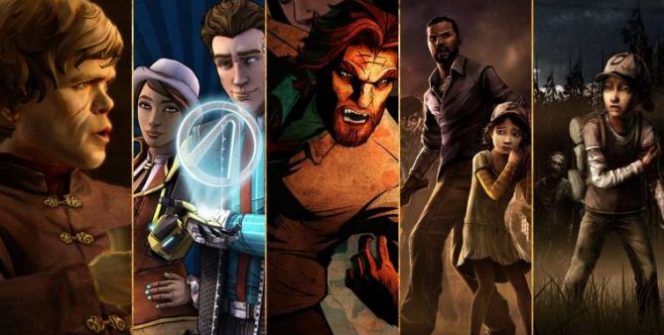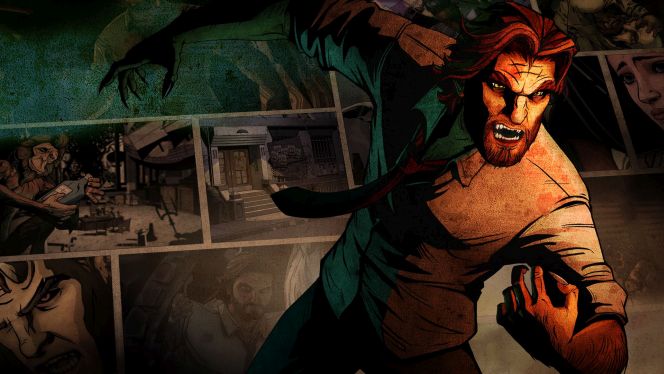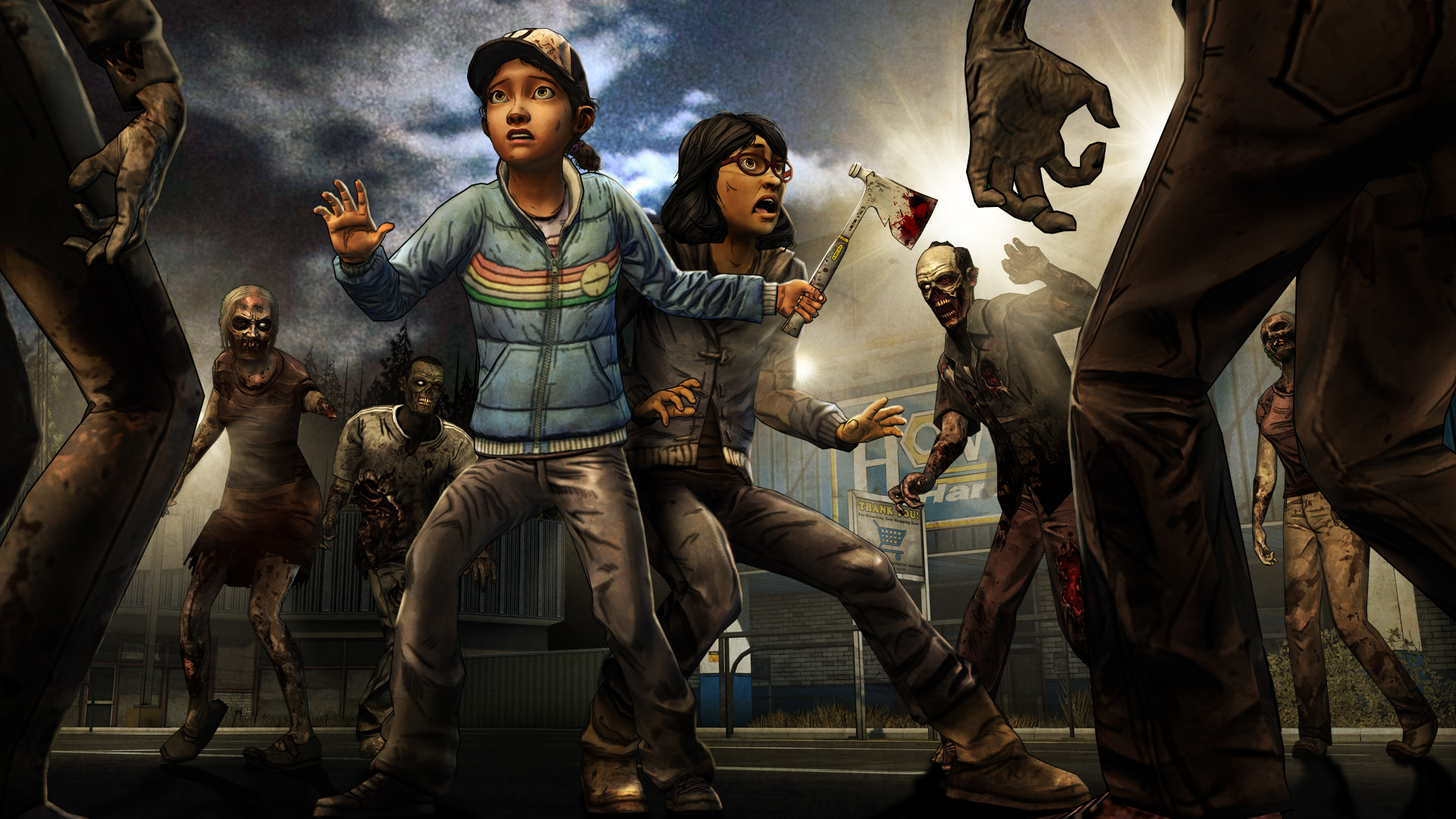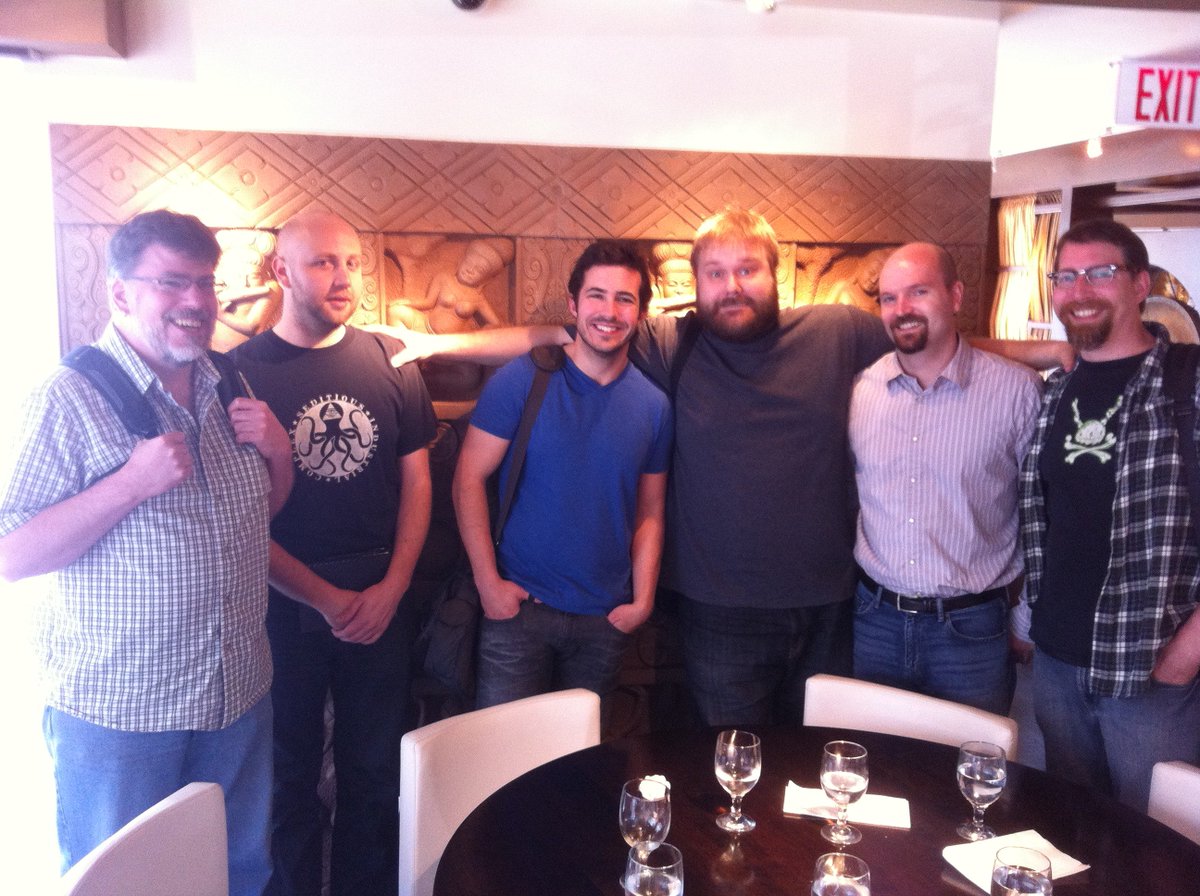Opinion – In just a week, a Japanese publisher’s foreign studio, and an independent studio both announced closing its doors. The gaming industry is getting faster and bigger, while the AAA titles’ development costs increase, which while not push up the games’ price, they tend to have content cut out of them into DLC. A developer thought otherwise, but the apparent workplace culture might have been the reason for their demise.
Ah, the double-edged sword: when I have to write my opinion, the gonzo style approaches, and now I have to write about the rise and fall of Telltale. However, at the time of writing, I don’t have much of an opinion, but I’ll get there „on the road.”
I
To have one page less to think about (which turned out to be a stupid thought as this thingamajig has become the longest thing I have written recently…), let’s take a look at Telltale’s story, as I’m not going to strain myself for no reason!
Telltale‘s history stems from LucasArts – the team has worked on a ton of games from Star Wars to some Tim Schafer-ideas. Telltale was founded by ex-LucasArts employees (Kevin Bruner, Dan Connors, Troy Molander) in July 2004 after Sam & Max: Freelance Police, the direct sequel of 1993’s Sam & Max: Hit the Road, got cancelled. (In case you don’t know, the investigator dog’s and the hyperactive rabbit’s adventures have become one of the essential LucasArts point-and-click games, which is felt in the last Telltale games as well…)
In February 2005, Telltale‘s first game launched, and it was the only one with original characters: Telltale Texas Hold’em was – obviously – a poker game, which ended up getting two sequels as Poker Night at Inventory (2010) and Poker Night 2 (2013), although with other characters. The poker game already had their proprietary engine called Telltale Tool. After Bone: Out from Boneville (adventure game, it got a sequel with The Great Cow Race subtitle), the first licensed project already launched – CSI: 3 Dimensions of Murder was already a hint of the company’s future in 2006 (or in 2007 on the PS2 with a remade version).
In October 2006, Telltale reached another critical point in their history: they launched Sam & Max: Save the World (which, at the time, was called Season One). It was episodic (this was the time when the team started definitively going down this route), and it was somewhat of revenge on LucasArts, as Freelance Police’s team was the core of Telltale, and even Steve Purcell, Sam & Max’s creator, joined them. The success came quickly – the duo got two more games/seasons (Beyond Time & Space – 2007/08, The Devil’s Playhouse – 2010), and the team started working on more licensed games, which was necessary, as they got six million dollars from investors in 2007, and they had to keep them happy.
The CSI license got three more games (Hard Evidence – 2007, Deadly Intent – 2009, Fatal Conspiracy – 2010), but, as it was mentioned a paragraph above, the list kept expanding: Homestar Runner’s Strong Bad’s game, Strong Bad’s Cool Game For Attractive People (2008), Wallace and Gromit (Wallace & Gromit’s Grand Adventures – 2009), and even the Monkey Island-license has taken a trip to Telltale (Tales of Monkey Island – 2009). They had a minor puzzle/adventure game detour (Puzzle Agent 1/2 – 2010/2013), and meanwhile, we reached the main turning point of Telltale’s history.
Although they also got a Law & Order adaptation out the door (Law & Order: Legacies – 2011/12), Back to the Future: The Game was already looking into the future, and not because of being the adaptation of the classic film trilogy from the 80s/90s. Telltale started getting more significant licenses, which is proven by Jurassic Park: The Game in 2011, but the game after it was the one that has propelled them to unbelievable heights. In the Spring of 2012, The Walking Dead has launched.
Robert Kirkman’s work was created in a cel-shaded visual adaptation in an episodic format, and with the help of Skybound, Telltale managed to come through with the post-apocalyptic, zombie-invasion American tone, and this series has become the longest running project for the developers.
II
From this point, I have to refer to The Verge, but the team’s star starts being flying here. At the 2012 Spike Video Game Awards (which is called The Game Awards nowadays), the Game of the Year category wasn’t taken by Dishonored (which was terrific), or Mass Effect 3 (which got negative responses due to its DLC and the beginning of BioWare losing itself), but The Walking Dead.
Here, we take a return to the company history – in 2013/14, The Wolf Among Us runs down (which had a sequel planned and cancelled…), 2014/15 had Tales from the Borderlands (whose finale launched on the same day as Life is Strange’s finale, and for me, Dontnod has won the duel…), as well as Game of Thrones (whose sequel was also cancelled). 2015 saw the launch of Minecraft: Story Mode (which had extra episodes and a second season pass for the first season, and it’s still getting finished for Netflix), 2016 saw the entrance of Batman (whose second season did not close the story, and we won’t see the end of it anymore…), and last year had Guardians of the Galaxy. You can notice how several licenses are running at the same time.
Back to the SVGA – Sean Vanaman, who was invited along with Jake Rodkin on the podium without getting credit, despite being co-creators and project leads on The Walking Dead, has taken the award out of Bruner’s hand, saying that the most talented people work at Telltale. At the company that had financial problems just a year before. After TWD’s success, Telltale started to grow, but in November, roughly 25% of their employees (90 people) were fired, and multiple anonymous, Telltale-related people told The Verge that there were tons of overtime work, as well as negative, toxic management. (Oh, I can bring up a few examples for that – one time, the website was quickly pulled from under me, or how about a reading editor with a PhD, who managed to modify a sentence in my review in a print magazine so much that it became incoherent…?)
The growth changed the work culture, which changed Telltale in return. The success has distorted Telltale too much. The communication wasn’t on the same level within the company after the growth, which resulted in chaos, disturbance, and work done for no reason, although they should have had easier job due to not having to focus on creating their unique IPs during most of their fourteen-yar history.
They started making too many games – especially in the last three/four years before the first layoffs, in the 2014-2017 era, we had a ton. Let’s not forget that after the first season of The Walking Dead, we got the 400 Days DLC, the second season, the Michionne miniseries (which, for me, was only decent at the end, at the flaming house…), the third season, and now the final one, which could be the requiem for Telltale. Too many titles, too much work, a lot of episodes, and we almost never knew when the next one is coming. We only got a schedule for the fourth season of The Walking Dead, perhaps too late. Before it, things were changed in games up until the last moment while the requirements’ bar was increased, causing more chaos. There always were employees who worked 14-18 hours a day, every day, only to keep Telltale going (as the IP owners could have pulled the rug from under them), and there was no stopping in sight. The episodic nature meant there was no sign of taking a break, as there was always a possibility for a sequel. While an episode was 80-90 minutes long, the hours of work behind it was way more than that. Now imagine things with four series running simultaneously…
III
Multiple sources of The Verge claims that the issue was rooted in Kevin Bruner, the former CEO of Telltale. He started acting harsher after the success of The Walking Dead. Although he was a good programmer at LucasArts (he was helping with the creation of Telltale Tool, too), he didn’t seem to give the spotlight to other people, which could be the reason why the Vanaman/Rodkin duo has left. They moved to independent game development, and at Campo Santo (which is now belonging to Valve!), they made Firewatch, which proved their skills. Also, Night School Studios’ Oxenfree was more fuel to Bruner’s fire. He was the one who got interviewed, even though he wasn’t the project lead for multiple games (those people were left in the dark). Bruner has disputed this claim to The Verge. Moving on to 2015, he became the CEO of Telltale (Connors was the CEO before him), which meant that the creative bottleneck role was joined by creating fear. He became the eye of Sauron from Lord of the Rings. He kept complaining even if the employees followed his requests down to a tee, and they tended to be stuck following Bruner’s ideas instead of what the team believed what could have been good. Still, he had good ideas (such as the X will remember that thought, even if it felt useless at times when X died a minute after…).
The lack of creativity’s progress resulted in frustration – Bruner didn’t accept creative ideas because they were presented to him in a half-complete format. The Walking Dead was successful in 2012 because back then, it felt fresh and new. Repeating the same formula six years later isn’t going to be as shiny as it was in the past… and yet, they tied themselves to this formula, as all games bar Poker Night and Puzzle Agent followed it. Bruner left Telltale in March 2017, putting Connors back into the CEO seat until Pete Hawley, an ex-Zynga board member, took over. As with Zynga, Hawley oversaw layoffs at Telltale, too, in November. However, the fired people had severance pay and benefits until the end of 2017, and there was also a fair held for them to meet job headhunters. Thus, Hawley wasn’t blamed for the layoffs – instead, the previous years and their questionable business decisions were in the crosshair. The repetition caused them to be weak, but that was 2017. Now it’s 2018.
IV
Even in December, Hawley thought that Telltale is in good hands, and he promised new IP and gameplay by 2019. He didn’t consider the layoffs to be dangerous – instead, he thought it was a necessary step for the future. Then, this week, the employees had three hours to take their personal belongings. There’s no severance pay. There’s bankruptcy, even though Telltale was looking for new employees a week ago.
– There are people who started at Telltale as recently as a week ago.
– Some of those people have children.
– At least one of them relocated cross country
– A lot of the Telltale devs have families & children. And now they don’t have a paycheck. Not even a severance paycheck.— Emily Grace Buck plz hire TTG devs! (@emilybuckshot) September 22, 2018
Melissa Hutchinson, Clementine’s voice, stated in a Twitter post that the September 25 episode might be the final one for The Walking Dead.
Hello friends. I am so very deeply moved by the messages of love that I, and the folks from @telltalegames have been receiving. Yesterday was one of the toughest days ever. A lot of hearts were broken, including mine. Please read the attached. #TelltaleJobs #Clementine #TWD pic.twitter.com/Fb68z86j8e
— Melissa Hutchison (@Melyhutch) September 22, 2018
Since then, there are some updates. There might be a way to wrap things up. There is a lawsuit from former employees. And TWD’s final season isn’t available for purchase digitally at the moment.
In my opinion, overworking someone is never useful if it’s only done to make a profit while the employee’s lack of motivation and enthusiasm, or their tone towards the work is not considered. Sure, the job has to be done, but if it’s done in a way that the employee gets bored of it due to the stress of tight deadlines (or putting them in a situation with no happy end for them) is never good either.
With the growth of the gaming industry, there will be a similar situation elsewhere, and the employer is not giving a damn is never the solution. The employee might have silently had enough and is just waiting for the right moment to leave and do something they like to do. Something that possibly earns them more money. Who knows how many people have been broken by Telltale’s repetition? Who knows how many people have retired from the gaming industry due to the hard, hopeless situation?
So, Telltale died. The revolutionizer of the episodic games bows off the podium. Dontnod and Big Bad Wolf both claim to take the throne. Life is Strange 2, and The Council both have the chance to succeed – the former needs time to see if it could happen, and the latter proves with four episodes how much the episodic game formula could evolve.
The king is dead. FINITA LA COMMEDIA.
-V-






















Leave a Reply